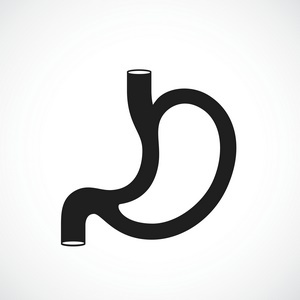What Is Fasted Training Or Empty Stomach Running?
Fasted training or empty stomach running refers to working out when you haven’t eaten for more than 6 hours or so. You essentially have an empty stomach and your last meal was several hours ago – most commonly an early morning run before breakfast.
Fasted training frequently refers to cardio types of training, often running. Although, fasted training is also referred to at times in relation to bodybuilding and weight training.
However, there is a bit to know when it comes to fasted training. To help cover all of your questions on what is fasted training or empty stomach running? – we break them down into small categories below.
What Is Fasted Training
This term is used to cover any kind of training (exercise) that is performed on an empty stomach, normally around 6 hours or more since the last meal.
There was a field of thought in the fitness world that training on an empty stomach burned more calories. However, that is no longer considered true by many.
This could be in part from the study conducted in 2014 that compared fasted running to non-fasting. It did find that the participants who fasted burned more fat during their workout. While the non-fasting group burned up more carbs.
So, this factor might be why the common adage is that you burn more fat doing fasted training.
However, that study found in the results that the amount of weight loss was very similar between the groups. The results suggest that weight loss is not affected by whether they fasted or not.
So there may have been some truth in the premise that fasted training burns more fat cells while working out – yet it doesn’t seem to affect the overall weight loss. So even if you don’t do fasted training, you will still burn fat and lose weight if you are consistent.
Why Do People Run On An Empty Stomach?
There are a few reasons people run on an empty stomach. One reason is that they feel sick or nauseous if they run too soon after a meal.
Some morning-time runners might not want breakfast when they wake up, but they want to get in their morning run.
However, another reason can be that they believe more fat can be burned on an empty stomach. As mentioned in the previous answer, there may be some truth to this during the workout. But, the overall effects might be negligible.
The Pros And Cons Of Running On An Empty Stomach
Pros:
- Reduced chances of feeling sick, bloated, or nauseous while running from a full stomach. This is a complaint that some people who run in the morning have, in particular.
- You might burn fat and used stored energy sources – during the workout.
- Reduce energy intake – May reduce calorie intake over a 24 hour period a study showed (more details below).
Cons:
- Lethargy, that inhibits the ability to perform high-intensity workouts – you have no fuel!
- Although you may burn fat as a source of fuel, it may not be an overall benefit for fat loss compared to non-fasted cardio. So, what’s the point?
- You might overeat after the workout as your body is craving a fast hit of calories
- Doesn’t help with fat burn after the workout like a higher intensity training might – so the use of stored fat as fuel theory doesn’t really make a lasting effect.
- Could lead to muscle loss or increased injury risk
Are you trying to lose weight while training for a half marathon? Check out my free guide on losing weight during a half marathon training cycle.
Benefits Of Running On An Empty Stomach
One of the reasons running on an empty stomach gained popularity is because it makes your body used fat cells as a fuel source. For anyone wanting to lose weight, this certainly sounds appealing. As is covered elsewhere in this article, this isn’t the whole story though.
Another benefit of running on an empty stomach for some runners is that they feel lighter and better than if they had eaten recently. It can be off-putting to feel like your stomach is filled with fluids sloshing around or your tummy feels bloated.
A moderate to light run on an empty stomach can be perfectly enjoyable. You are able to use enough stored fuel sources to keep you going and enjoy your workout – without it becoming draining.
Fasted training Increases Fat Burn
A key point to the fasted training appeal is the touted increased fat burn potential.
Now, it is true that if your body is in a fasting state it will need to draw on fat deposits for fuel.
However, this is in the workout. You could also fast during the morning by accident because you skip breakfast. So, your body will burn fat until you eat something. But, not every office worker who skips breakfast is a lean, fat-burning machine, are they? It is the same for fasting runners.
This is because weight loss occurs over time when there is a greater balance of fat-burning compared to fat, or calorie, intake. So although your body uses stored fat for fuel whenever you haven’t eaten for a while, it does not mean you lose weight.
There needs to be a consistent increase in calories burned to calorie intake to see changes in weight – whether you eat before a workout or not. So, overall, running on an empty stomach will not increase your fat burn when you look at the bigger picture.
Empty Stomach Running Reduces Energy Intake
A potential positive of fasted training is from the results of another study.
The study found that fasting before a workout may suppress energy intake over a 24 hour period or more. Which, could help with weight loss if a smaller calorie intake is had over the longer term.
The study found no change in calorie intake after the workout, which might explain the purported downside that there is a greater hunger after a fasted workout. However, they did find that the 24-hour effect was less calorie, or energy, intake.
Fasted Training Reduces Digestion Problems
As mentioned earlier, running on an empty stomach may mean fewer digestion problems.
A run after eating can make people feel sick or nauseous. It can also mean you feel heavy or fatigued and even give you a ‘stitch’ or pang of pain in your stomach before you have really even gotten started.
For runners who experience these issues, a fasted-run could be the best option for them.
Drawbacks Of Running On An Empty Stomach
There are several drawbacks to running on an empty stomach though. The obvious one is that you are often hungry. The hunger pains early in the morning might even lead to you associating running with a very unpleasant experience. You are not only tired but hungry too.
It also means you have less fuel for the fire to keep you going. An empty stomach might be okay for a lighter workout, but for something that requires high intensity or endurance then you might begin to feel fatigued.
Some people begin to feel light-headed if they do exercise on an empty stomach.
Reduced Training Intensity
So, a big setback of using fasted training is that it means you will have reduced training intensity.
As mentioned briefly before, you don’t have the immediate fuel source of your last mean to give you the energy to sustain a strenuous workout. For those who want to train hard and get results, it might not be a good option.
As previously stated, it likely does not help with long-term weight loss so it also reduces your capacity to train hard (or even moderate), it starts to seems like a pointless exercise.
Fasted Training Might Lead to Injury
Running on an empty stomach can contribute to higher use of stored protein as a fuel source. It can pretty much double that of when running in a non-fasting state.
So using protein from muscle tissues presents a problem to runners. It can reduce overall strength and lead to injury and, or, poor performance.
Your body is then working overtime to repair and restore. Especially if you have been working to maintain a strong physique, you don’t want it undone by overdoing your workouts on an empty stomach.
An injury can put you out of training for weeks, or even months too.
Fasted Training May Result in Muscle Loss
As you probably already, protein is the building block of most of our body and this includes muscle mass. As mentioned, aerobic training on an empty stomach can lead to a greater breakdown of protein for fuel.
This often comes from muscle tissues breaking down.
So, repeatedly running on an empty stomach could mean that you lose muscle mass. For most people, this is the opposite of their training goals. Even if you aren’t bodybuilding, your muscles are very important to maintain.
Fasted training during a marathon or half marathon training cycle
Training on an empty stomach during a marathon or half marathon training cycle can be beneficial. You should never fast before a hard speed workout, this can lead to an increased risk of injury, reduced intensity, and overall poor performance – thus negating the speed workout in the first place.
Benefits of fasted training during a marathon or half marathon training cycle
Fasted training belongs on the less intense days, ideally on your longer runs. Here are a few benefits you will reap if you perform a fasted training session:
End of race simulation
When you train on an empty stomach during one of your long run sessions you’re actually simulating an “end of the race” day experience especially for a marathon race. You will become more tired mentally, faster, and your legs will also feel sluggish which simulates the end of the race experience around mile 20+ during a marathon and mile 11 during a half marathon.
Training your body to burn fat more efficiently
When you run past 90 minutes most if not all of your energy is gone. If you’ve put nothing else in the stomach (empty stomach) your body will look for its next energy source. Once all of your glycogen stores have been depleted your body turns to fat for its next energy source. While your body is using fat as energy, you will also mentally feel the effects of this process which again simulates an “end of race” experience to help fortify your mind.
Drawbacks of fasted training during a marathon or half marathon training cycle
While it’s ok to run a few training sessions during a training cycle on an empty stomach, you shouldn’t do back to back fasted training. In fact, I would advise running a total of only 2 empty stomach runs during a half marathon training cycle and maybe 3 empty stomach runs during a marathon training cycle. These special runs should be spread out during your training cycle.
You might be extra hungry after a long empty stomach run
After a fasted training run, you might become overwhelmingly hungry. Be careful of how much food you eat after a fasted run. Eat what you normally would eat after a non-fasted run with an additional 100-200 calories snack.
12-week half marathon training plan (with fasted training)
- Week 1 – Long run
- Week 2 – Long run
- Week 3 – Long run
- Week 4 – Long run
- Week 5 – Long run (fasted/empty stomach)
- Week 6 – Long run
- Week 7 – Long run
- Week 8 – Long run
- Week 9 – Long run
- Week 10 – Long run (fasted/empty stomach)
- Week 11 – Long run
- Week 12 – Race
18-week marathon training plan (with fasted training)
- Week 1 – Long run
- Week 2 – Long run
- Week 3 – Long run
- Week 4 – Long run
- Week 5 – Long run (fasted/empty stomach)
- Week 6 – Long run
- Week 7 – Long run
- Week 8 – Long run
- Week 9 – Long run
- Week 10 – Long run (fasted/empty stomach)
- Week 11 – Long run
- Week 12 – Long run
- Week 13 – Long run
- Week 14 – Long run
- Week 15 – Long run (fasted/empty stomach)
- Week 16 – Long run
- Week 17 – Long run
- Week 18 – Race
Is it ok for a beginner to train under fasted (empty stomach) conditions?
If you’ve never completed a half marathon or marathon I would recommend that you don’t mess with fasted training. Wait until you’ve completed your first half marathon or marathon victory and then slowly integrate these into your training plan. Fasted training is usually performed when runners move onto beat their personal bests (PRs) or during intense competitions.
Easy runs lasting less than 60 minutes
So don’t get confused about when to fast and not fast. I run most of my easy runs lasting less than 60 minutes on an empty stomach. Why? Because your body will be using its energy stores to run the 60-minute duration and not run out of energy. Some runners will eat a tiny snack such as a banana or a piece of toast with peanut butter before they go run. This comes down to personal preference. To truly experience a fasted run you need to run past the threshold of your energy stores, which for most people is around the 90-minute mark. Some runners can extend this to 120 minutes, however, this is a small percentage of runners.
For a great resource of how much fuel you need and when check out:
How many carbs do I need to run a half or full marathon?
Risks For Certain Conditions
Although fasted training might be okay for most if done with only low-intensity workouts, there are some people who should avoid it.
If you have diabetes or Addison’s disease – to name a few more obvious ones, then this isn’t for you.
As always, if you have any medical condition check with your doctor before putting your body through the additional strain of fasted training.
| Help support me and subscribe to my YouTube channel. YouTube video - 30 ways to make your runs less painful! Coach Scott's Credentials:
|
To sign up for a FREE half marathon training schedule, log sheet, and pace predictor CLICK HERE.

Recommended gear for runners
Connect with me:
| facebook.com/BeginnerToFinisher/ |



1 thought on “What is fasted training or empty stomach running?”